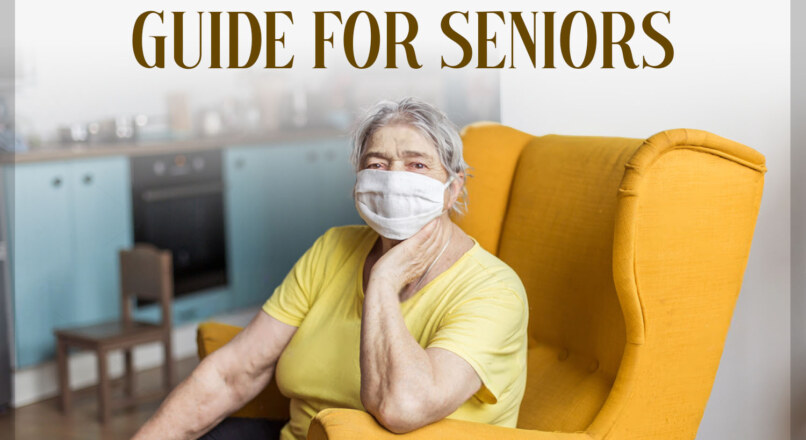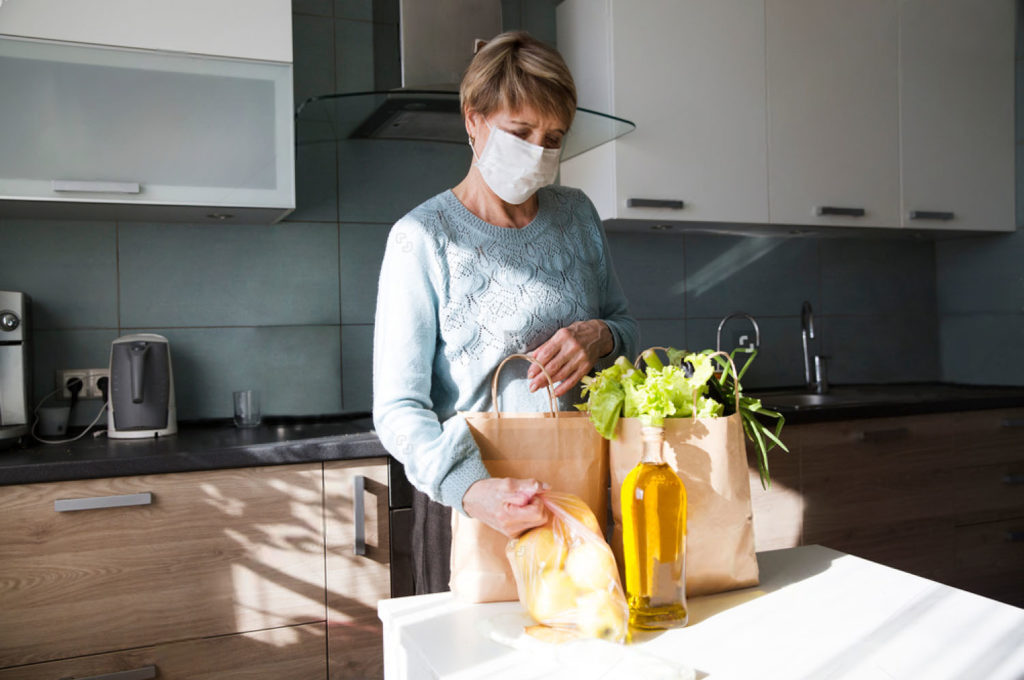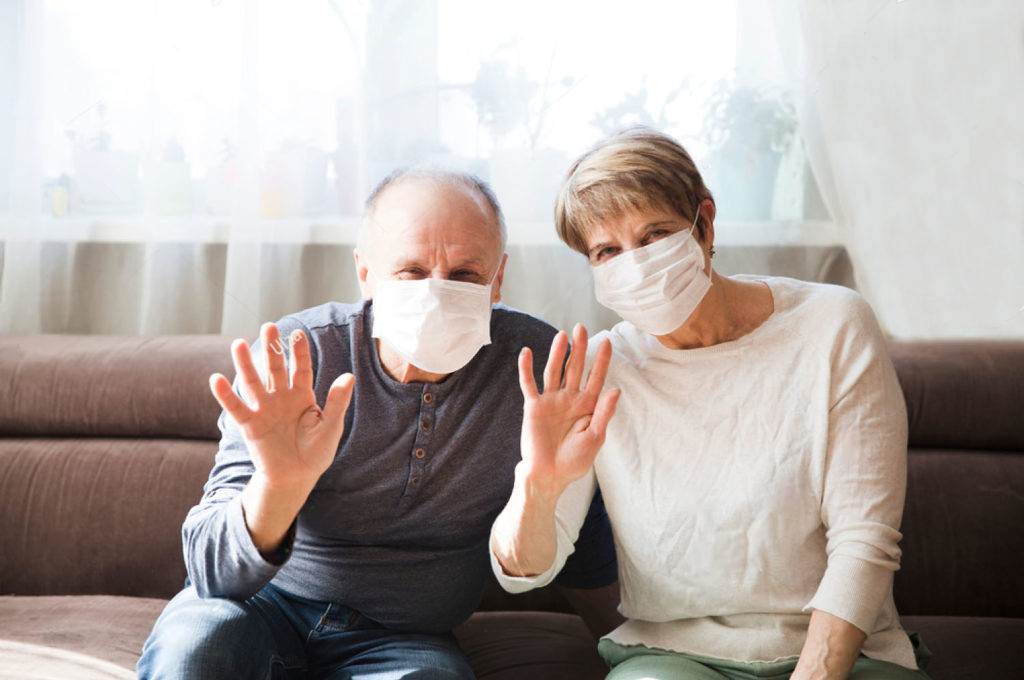
Best Shelter In Place Guide for Seniors Quarantined At Home Due to the COVID-19 Coronavirus
Best Shelter In Place Guide for Seniors Quarantined At Home Due to the COVID-19 Coronavirus Pandemic
Today we are going to discuss the best shelter in place guide for seniors quarantined at home during the COVID-19 pandemic we all are facing.
Despite the ongoing research of the world’s leading medical experts, we as a society still know so very little about this year’s virus COVID-19.
Facts and theories about how the virus spreads is subject to change on a day-to-day basis. What we do know, aside from not having a cure or a vaccine, is that COVID-19 has proven to be extremely lethal for older adults with pre-existing medical conditions.
Please note that the following article is not meant to induce panic because the media has already taken care of that. Instead, think of the following as an educational pamphlet about how to manage life with mandated precautions beyond our control.
Since COVID-19 came to the United States, the government, the CDC, and the WHO organization have suggested or even required drastic measures of the general public.
Some of these measures include full city or state lockdowns, shelter-in-place precautions, and social distancing practices. The duration of these measures have yet to be determined. This forces persons of any age to quarantine at home, which is a major lifestyle change for a population of go-getters in the U.S.
Due to the somewhat known nature of COVID-19, health officials suggest that elderly or medically fragile adults self-quarantine for the next several weeks. In order to successfully do so, they’ll need some support.
Here are a few areas of concern as well as suggestions for older adults as well as their loved ones and caregivers on how to self-quarantine without going stir-crazy.
Preventative Actions For Seniors Living Home Should Take:
Emergency Contact List:
If you are elderly and living alone in a private residence, then it should already be good practice to keep a readily available contact list of neighbors, friends, and family.In the event of an emergency, you’ll want to keep the list somewhere easy to spot whether it’s on your cellphone or in enlarged print on a piece of paper next to the landline.Have your doctor’s office contact information on the list in the event that you would like to report any new symptoms that could be related to COVID-19.
Daily Cleaning:
Start some good habits of keeping your house clean, particularly areas or spots which are high-traffic areas for hand touch.This includes door knobs, door frames, sinks, countertops, cell-phones, desk-tops, oven and towel racks, fridge handles and doors, table tops and chairs.If you or a loved one recently went grocery-shopping, sanitize cans, plastic bags, and cardboard boxes (i.e. cereal) because you don’t really know how many shoppers touched it all before purchase.
If cleaning on your own, use germ-killing products such as Clorox wipes with rubber gloves. If you require assistance for house-cleaning, you can still hire out or have a family member come in to assist.
Just make sure you still distance yourselves from each other and that the person is not coughing or sneezing all over the house. Make sure everyone who enters and leaves your house immediately washes their hands with soap and water.
Cleaning Assistive Devices:
We don’t think about this much, but make sure you are regularly sanitizing your assistive devices. This includes walkers, wheelchairs, canes, reachers, dressing sticks, toilet risers, and shower chairs.Researchers are finding that COVID-19 can stay alive on plastic and metal materials for several hours or even a few days.
Hand Washing:
Religiously practice hand-washing with soap and warm water. You should be scrubbing for no less than 30 seconds. Of course, don’t go overboard to the point where you rub your hands raw.Anytime you have anyone else in your house who is coming in from the community setting, always have both you and the visitor wash hands.
Grocery Shopping:

If you would still like to go to the store for grocery shopping, go during early morning or designated “senior citizen shopping” hours (this is new since COVID-19). Sanitize your cart handle with available sanitation wipes at the front door.
If your city is in full lockdown and you are not allowed at the store, you can participate in online grocery pick-up where you send a list of items you want to buy and an employee will cart your groceries out to your car. If you want, you can assign a family member to help you with pick up.
Contact Doctors for Visit Schedule:
During these turbulent times, it is best to call your doctor ahead of time if you wish to make a non-urgent appointment.Some doctor’s will do phone calls or even virtual chat calls online so that you can avoid coming in where other sick patients are.
Getting Prescriptions:
For your regular medication, the doctor can still prescribe your medicine over the phone or virtual chat.And, most department stores allow people to come inside the store to retrieve their medicine from the pharmacy. Some stores are currently working on curbside delivery so that you don’t have to go into the store to pick up your prescription.
Exercises While In Doors
You can still get your daily exercise needs in while inside the house all day. It might be time to get better acquainted with Youtube and other virtual courses.
You can find virtual lessons on Yoga, Tai-Chi, in-home aerobic routines, and so on. Find something that fits your interests and physical needs.
What to Do If You Are Sick ? (Follow The CDC Guidelines)
If you begin to feel sick and you are concerned that it could be COVID-19, the CDC has some guidelines for what your next steps will be. If you develop a fever, coughing, and/or difficulty breathing, call your primary physician immediately.
If you call your doctor ahead of time, they can prepare the office and lobby areas for your arrival in order to contain the spread of the virus to others.
Your doctor will determine based on your symptoms whether or not you should get tested for COVID-19. If you test positive and the symptoms are mild, doctors will send you home to recover and to self-quarantine while making you stay in frequent phone contact with them throughout the next couple of weeks.
While monitoring your symptoms, make sure you are strictly limiting your contact with others and practicing healthy sanitation techniques. If breathing becomes labored or your chest tightens, call your doctor immediately for emergency admittance into the hospital.
Plan For Caregivers or Family Members Taking Care of Elderly Seniors
-
- What Precautions to Take?
-
- For loves ones who frequently check on an elderly person, be prepared to alter your interaction with them. This means no hugs, no kisses, no pats on the shoulder, or any socially acceptable form of touch. If you have to touch for immobility reasons, wear gloves and keep away from their face.
-
- If the elderly adult requires a check-in, make sure it’s a family member or friend who is not actively sneezing or coughing (even if you think it’s just allergies, it’s not worth the risk).
-
- Before entering their home, change into a fresh set of clothes (COVID-19 can survive on fabric), immediately wash your hands with soap and water, keep your distance from your elderly loved one, and sanitize any and all items that you touch. Many adults will not be symptomatic of COVID-19 but can still be carriers for the virus.
-
- Make sure every item that you bring into the house from the community (aka groceries, movie rentals) gets sanitized.
Combating Boredom and Social Isolation

The internet world was made for times like these. Online services can be an easy remedy to prevent boredom and social isolation. You may have to have a loved one show you the ropes, whether that’s in person (with protective measures) or over the phone:
Face-Time or Video Chat:
Schedule video chats via Skype or Hangouts so that you can still talk to your family members.
Coloring Books:
Stock up on coloring books, art supplies, puzzle books, or any book that tickles your fancy.
Reading:
Catch up on your reading, either with books you already own or digital books. Research Kindle books and Audible books that you can read online for free or for a small monthly fee.
Livestreaming:
Watch free concerts and events that are being video-recorded and are free access to all online. If you’re an active church-goer, access virtual sermons and conferences.
Call Loved Ones:
Make frequent calls to friends and family members. It’s very likely that they will have plenty of time to talk to you due to overall quarantine measures. Call some of your elderly friends who you think could use a social boost.
Pull Out Old Hobbies:
Go rub the dust off of some of your old interests: sewing, cross-stitching, car repair, woodwork, quilting, and so on.
Start Journaling:
There’s no better time to journal than during life’s upside down turns due to a pandemic. Sit down and write or type about your daily experiences with quarantine and how COVID-19 has altered your life. More than likely, someone in your life will enjoy reading your take on it all.
Our Thoughts to the Best Shelter In Place Guide For Seniors Quarantined at Home During the COVID-19 Coronavirus Pandemic
Quarantining in your home, especially when you’re not used to it, can be super challenging to cope with. Keep your phone nearby so that you can always talk to someone to relieve the boredom.
Keep updated on precautions and good sanitation practices. Rediscover yourself and all of the new and old hobbies you can participate in from the comforts of your own home. This time will pass.

Leave a reply